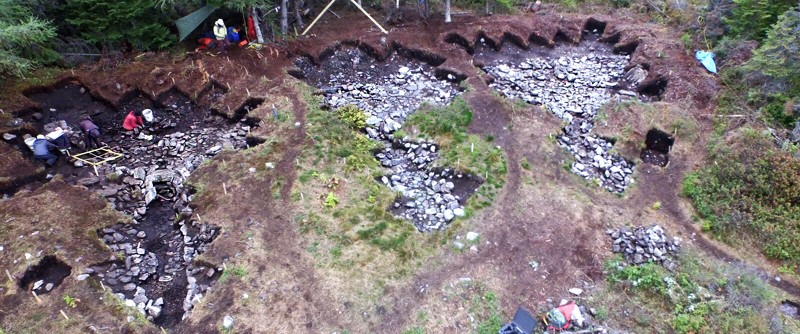Graduate Program

General Information
Memorial’s Department of Archaeology includes archaeologists whose interests span the deep-time, precontact and historical records of the Americas, Europe and Africa. The Department has particular strengths in the study of the North Atlantic region, and maintains active field research programs in Newfoundland and Labrador, British Columbia, the Canadian Arctic, Greenland, the Caribbean and Europe.
Our strong international reputation is reflected in the research profiles of our faculty, the interdisciplinary research projects and community engagement initiatives we pursue, and our vibrant teaching programs. Students have access to state-of-the art laboratory facilities and archaeological collections. We foster collaborative projects with cross-appointed faculty in Geography, History, Classics, and Earth Sciences.
We provide students with the opportunity and support to develop strong field-, lab- and theory-based research projects of their own, and to join a community of scholars with an abiding curiosity about the material cultural and biological records of the human past.
The Department of Archaeology offers graduate programs leading to Master's and Doctoral degrees.
- The M.A. degree involves coursework, a thesis proposal and a written thesis, which can be completed in two years of full-time study
- The Ph.D degree involves coursework, a second language requirement, comprehensive exams, and a thesis proposal, which can be completed in four years of full-time study.
Information for Prospective Students
Minimum Admission Requirements
- MA – Bachelor's degree in Archaeology or a cognate discipline
- PhD – Master’s degree in Archaeology or a cognate discipline
Admission is competitive. Meeting the minimum requirements does not guarantee admission to our programs. All applications are evaluated and ranked, and only the top candidates are admitted. Depending on the year, we admit between 6 and 10 students in total, typically with a distribution of one-third PhD and two-thirds MA students.
Key criteria that differentiate applications (in order of importance) are:
- Whether a faculty member is willing/available to supervise your project (see below),
- The strength and relevance of your academic background in archaeology or related disciplines, and
- Your academic record, as reflected in transcripts and letters of reference.
We strongly recommend that you contact a faculty member whose research aligns with your interests to determine if they are accepting new students for the coming year. Identifying a potential supervisor is essential for admission to the PhD program, and also for the MA program if you do not hold a B.A. Honours degree in Archaeology. Even an outstanding academic record will not result in admission if no faculty member is available or willing to supervise your proposed research.
Once the shortlist of eligible applications is finalized, they are ranked for admission. Offers are made based on both ranking and the availability of departmental funding, which comes from university allocations and individual faculty research funds. We do not admit students unless we can provide funding. Therefore, even if you have a potential supervisor, you may not be offered admission if your application does not rank high enough to qualify for funding.
Resources
- A list of our faculty can be found on the Archaeology Department website.
- Tuition information can be found through the School of Graduate Studies website.
- Instructions on how to apply can be found on the Memorial Admissions website.
- Find out more about applying to the Archaeology graduate program.
- For more information about Master's and Doctoral examinations and submissions, please review the School of Graduate Studies Theses and Reports guidelines.